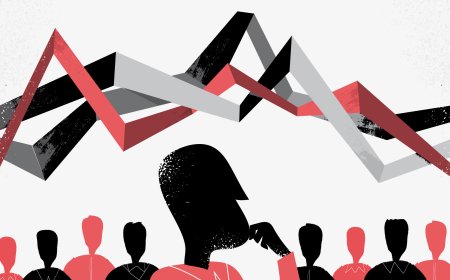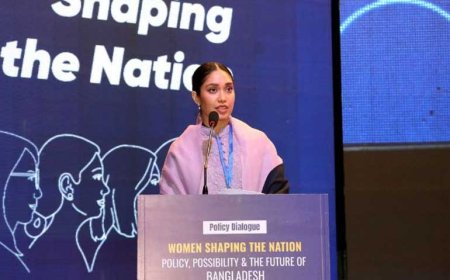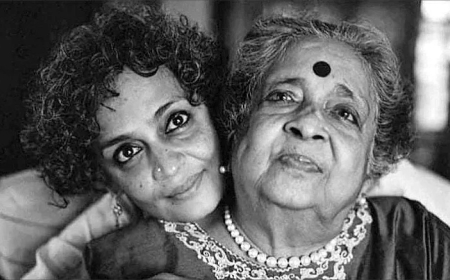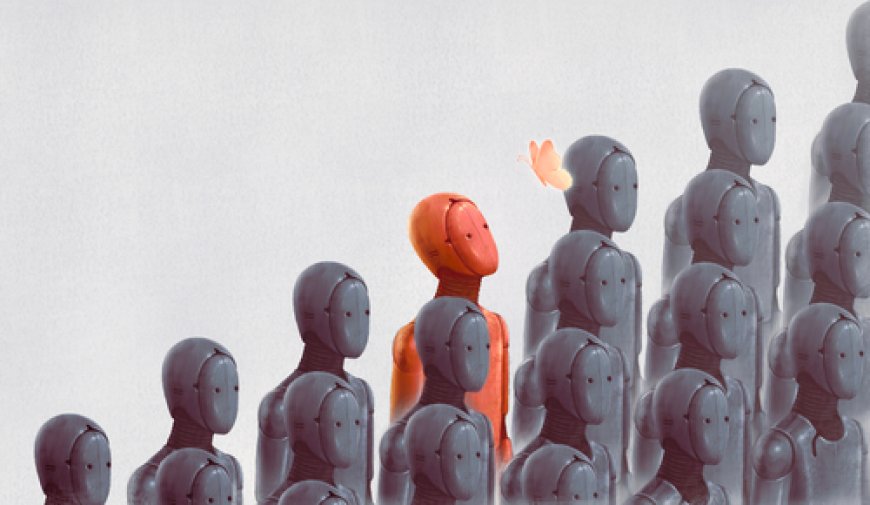Civil society must reassess its role in facilitating reform and this is why
If reforms are to pass, then all the political parties need to own them and feel that they have taken the lead and not that it was something forced upon them. Reforms the parties believe are imposed on them are destined to fail.
While the call for reforms to our politics, constitution, and electoral process took centre stage post-August 5, it was already on the table in the penultimate days of the Awami League regime.
Most political analysts attributed the brutality of the state actions to the power granted by the constitution to the Prime Minister and the ruling party. As such, curtailing this power was seen as the foundation to sustained political reform for Bangladesh.
In response, after being sworn in, the Interim Government (IG) formed series of reform committees and the committees have provided their recommendations.
The Civil Society coalitions also proposed their own recommendations. They have coined a few recommendations as non-negotiable. This includes formation of an upper house in the parliament and proportional representation in the upper house, term limit for the Prime Minister, and direct election of female MPs as opposed to selections in reserved seats.
Proposed reforms also include formation of National Consensus Committee (NCC) for constitutional appointments and referendum for constitutional amendments. BNP has pushed back on most of the key proposals. Jamaat pushed back on some. NCP accepted the most.
Over the last several months, I have had the chance to closely observe the civil society movement towards reform. I also had the chance to meet political leaders and hear their ambition, aspiration, and reservation towards reform. With the mounting discontent from civil society about the progress towards reform, I looked back in time to understand who resists reform, when, and why.
If we look back in time, we will know that parties unanimously accept reforms when they see it as conducive to creating a level playing field. Otherwise, parties see it either as a win or a loss.
In the 1990s, all parties unanimously accepted the terms for the caretaker government. Why? Because they all thought the caretaker government will provide level playing field for the election. In other words, they did not see the reform as a threat; they saw it as an opportunity.
However, before long, both BNP and Awami League wanted to tamper with the caretaker government system. While BNP’s attempts failed, Awami League eventually succeeded. The 15th constitutional amendment in 2011 abolished the caretaker government.
In the current state of affairs, Jamaat and NCP both see better chances with the reform proposals than BNP does. For example, the PR upper house system may guarantee 5 seats to NCP if they receive 5% votes but fail to win any seat in the lower house.
Also, it is relatively easy for NCP to nominate candidates for direct election of female MPs. They still do not have historical baggage at the grassroots level like the way BNP or Jamaat does.
It is thus not surprising that both BNP and Jamaat are pushing back on the proposal for direct election of female candidates in reserved seats. BNP agrees to the proposal to have quota for female nominations but they are willing to offer no more than 10%. To the activists, this at best qualifies as a tokenism, but not a reform.
Given that the gains from reforms vary between parties, we must therefore ask whether reforms can be done through consensus.
If we take the route of consensus for reform, which the IG has done, we must also acknowledge that we might not always achieve all our goals. Professor Yunus was right about a "hard reset." But in the absence of political will and consensus, a hard reset can easily be replaced by a harder reset by an elected government. The IG avoided that path. In the process, it failed to capture the power of time.
People and parties were more pro-reform before December 2024. As time passed, however, the vulnerabilities in our bureaucracy and political and socio-economic systems surfaced. Even before the reform commissions published their reports, the hope of reform was eroded by despair.
The IG may have thought they would have a "mandate" for three to five years. Perhaps that’s why they took it slow, resorting to tedious and time-consuming processes. The points that are being discussed now are not new and the discussions could have started as early as August 2024.
Given that political will is essential for sustained reform, the IG should have positioned itself as a facilitator. It, however, opted for the role of an enforcer instead. In my assessment, this did not go well with BNP.
If we follow BNP’s stance, it becomes clear that they saw the movement towards reform as a plot to curtail their post-election power. I believe BNP is pushing back because there is an inherent message on the reform proposals that BNP needs to be chained.
No party will negotiate if they hold a higher position but are told to lower their guard. In a negotiation where you want the party with higher power to accept your demand, you offer them more carrots, not sticks. Or you show them that they do not have the power that they perceive they have. We have failed to do either. BNP understood it very well and they saw no reason to cave in to various demands.
Civil society must acknowledge that reform requires a diplomatic approach, a facilitative approach. There is a difference between being a pressure group and a facilitator. Also, a pressure group may find it difficult to reposition itself as a facilitator, but a facilitator can quickly change its position to become a pressure group when the time calls for such.
Reform requires a push from within. The parties need to be facilitated to see the benefits of the reform proposals that are being made. The parties also need to believe that they are not accepting reforms because they are asked to. They are accepting reforms because they themselves want it.
I have heard it countless times from the mouth of key political stakeholders that it was they who made the call to reform first. That it was they who brought to attention the idea of an upper house.
We must understand that in our culture leaders love to claim that they changed because they wanted to, not because they were forced. If the reforms happen that then should be the win of the parties -- not civil society or the IG. Civil society must reassess its role and position to enable reforms.
Civil society must also remember that the road to reform is long and continuous. We must not let down our guard. We will have to continue to work post-election. A sustained call towards reform will mean that the elected government in the future will be inherently biased towards proving the civil society wrong in their calls to reform. And this is where we can get it right.
The same applies to the reform that we need on the bureaucracy which continues to enjoy their power on obstructing change to the greater benefit of the country. A sustained, facilitative push from civil society would mean that the bureaucracy too remains conscious and cautious.
Finally, we must be cautiously ambitious in our calls. The bureaucracy will not change without change in political will. As such, I do not think any reform of the bureaucracy will sustain if these are not politically enforced and mandated. I do not think we can change bureaucracy before electing the political government. In the interim, our best shot is to ensure essential reforms for a free and fair election. We must remember that eventually we need rule of law. It is the core tenet of any sustainable change.
When we navigate a complex and unknown path, we need to constantly look back to move forward. The path left behind also shows the light to the path we are to cover.
What's Your Reaction?



















































































